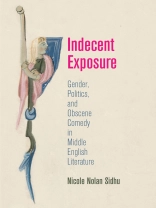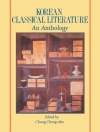Men and women struggling for control of marriage and sexuality; narratives that focus on trickery, theft, and adultery; descriptions of sexual activities and body parts, the mention of which is prohibited in polite society: such are the elements that constitute what Nicole Nolan Sidhu calls a medieval discourse of obscene comedy, in which a particular way of thinking about men, women, and household organization crosses genres, forms, and languages. Inviting its audiences to laugh at violations of what is good, decent, and seemly, obscene comedy manifests a semiotic instability that at once supports established hierarchies and delights in overturning them.
In Indecent Exposure, Sidhu explores the varied functions of obscene comedy in the literary and visual culture of fourteenth- and fifteenth-century England. In chapters that examine Chaucer’s Reeve’s Tale and Legend of Good Women; Langland’s Piers Plowman; Lydgate’s Mumming at Hertford, Troy Book, and Fall of Princes; the Book of Margery Kempe, the Wakefield ‘Second Shepherds’ Play’; the Towneley ‘Noah’; and other works of drama, Sidhu proposes that Middle English writers use obscene comedy in predictable and unpredictable contexts to grapple with the disturbances that English society experienced in the century and a half following the Black Death. For Sidhu, obscene comedy emerges as a discourse through which writers could address not only issues of gender, sexuality, and marriage but also concerns as varied as the conflicts between Christian doctrine and lived experience, the exercise of free will, the social consequences of violence, and the nature of good government.
Cuprins
Note on the Fabliaux
Introduction. Obscenity in Medieval Culture and Literature
PART I. FOURTEENTH-CENTURY PIONEERS
Chapter 1. Comedy and Critique: Obscenity and Langland’s Reproof of Established Powers in Piers Plowman
Chapter 2. Chaucer’s Poetics of the Obscene: Classical Narrative and Fabliau Politics in Fragment One of the Canterbury Tales and The Legend of Good Women
PART II. FIFTEENTH-CENTURY HEIRS
Chapter 3. The Henpecked Subject: Misogyny, Poetry, and Masculine Community in the Writing of John Lydgate
Chapter 4. ‘Ryth Wikked’: Christian Ethics and the Unruly Holy Woman in the Book of Margery Kempe
Chapter 5. Women’s Work, Companionate Marriage, and Mass Death in the Biblical Drama
Conclusion. Lessons of the Medieval Obscene
Notes
Bibliography
Index
Acknowledgments
Despre autor
Nicole Nolan Sidhu is Associate Professor of English at East Carolina University.












